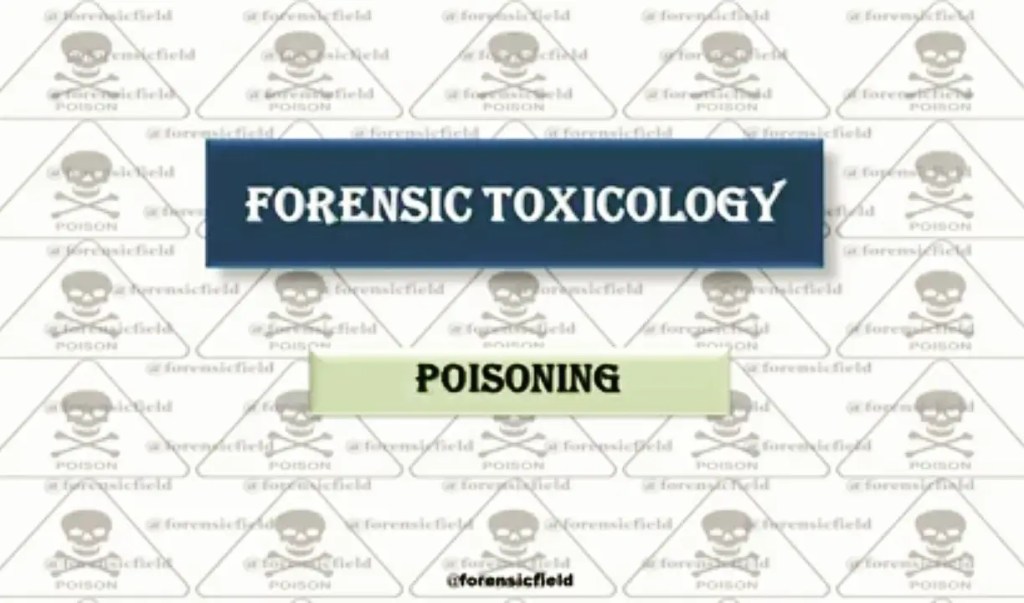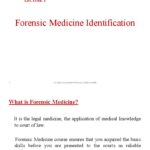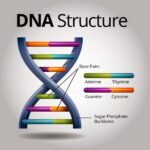Forensic toxicology. The name itself conjures images of clandestine laboratories, complex chemical equations, and the unraveling of secrets hidden within the human body. At the heart of this intriguing field lies the forensic toxicologist, a scientific detective whose expertise bridges the gap between chemistry, biology, and the law. But what precisely does this role entail? What are the responsibilities and the qualifications required to navigate the murky waters of poisons and their effects? Let’s delve into the multifaceted world of the forensic toxicologist.
The forensic toxicologist acts as a crucial linchpin in the justice system, analyzing biological samples to detect and quantify the presence of drugs, alcohol, poisons, and other toxic substances. Their findings are instrumental in a diverse range of legal investigations, from homicides and suicides to drug-related offenses and workplace incidents. They are, in essence, the silent witnesses who testify through the language of molecules, revealing the truth that might otherwise remain concealed.
The Core Responsibilities: A Molecular Microscope
A forensic toxicologist’s day is far from monotonous. Their responsibilities are diverse and demand a keen eye for detail. These responsibilities can be divided into several core areas:
- Sample Analysis: The bedrock of forensic toxicology is the meticulous analysis of biological specimens. This encompasses blood, urine, tissue samples, and even hair. These specimens are subjected to a battery of sophisticated analytical techniques to identify and quantify any xenobiotics present.
- Method Validation and Quality Control: Ensuring the accuracy and reliability of analytical results is paramount. Forensic toxicologists meticulously validate their methods and implement stringent quality control measures to maintain the integrity of their findings. This involves using quality controls and calibrators to ensure the veracity of the results.
- Interpretation of Results: The mere detection of a substance is not sufficient. The toxicologist must interpret the results in the context of the case, considering factors such as dosage, time of exposure, and individual physiological variations. Understanding pharmacokinetics, the body’s absorption, distribution, metabolism, and excretion of drugs, is crucial here.
- Expert Testimony: Forensic toxicologists often serve as expert witnesses in court, presenting their findings and interpretations to judges and juries. They must be able to articulate complex scientific concepts in a clear and understandable manner, defending their conclusions under rigorous cross-examination.
- Research and Development: The field of toxicology is constantly evolving. Forensic toxicologists often engage in research to develop new analytical methods, improve existing techniques, and expand the understanding of the effects of various substances.
Essential Skills: The Analytical Arsenal
To excel in this demanding field, a forensic toxicologist requires a unique blend of scientific knowledge, technical proficiency, and analytical acumen. Some key skills include:
- Analytical Chemistry Expertise: A deep understanding of analytical chemistry principles and techniques, such as gas chromatography-mass spectrometry (GC-MS), liquid chromatography-mass spectrometry (LC-MS), and immunoassays, is essential. The ability to troubleshoot instrumental issues is also key.
- Toxicology Knowledge: A thorough understanding of toxicology, pharmacology, and physiology is crucial for interpreting analytical results and understanding the effects of various substances on the human body. This includes understanding the concept of dose-response relationships.
- Attention to Detail: The meticulous nature of forensic analysis demands an unwavering attention to detail. Even minor errors can have significant consequences in legal proceedings.
- Critical Thinking: Forensic toxicologists must be able to critically evaluate data, identify potential sources of error, and draw sound conclusions based on the available evidence. They must be able to distinguish between correlation and causation.
- Communication Skills: Effective communication skills, both written and oral, are essential for preparing reports, presenting findings, and testifying in court. Clarity and precision are paramount.
The Allure of Forensic Toxicology: Unveiling the Invisible
Beyond the technical skills and scientific expertise, forensic toxicology holds a unique appeal for those drawn to the intersection of science and justice. It offers the opportunity to:
- Contribute to the Pursuit of Justice: By providing objective scientific evidence, forensic toxicologists play a vital role in ensuring that justice is served.
- Solve Complex Puzzles: Each case presents a unique puzzle to be solved, requiring the toxicologist to piece together the available evidence and unravel the truth.
- Advance Scientific Knowledge: Through research and development, forensic toxicologists contribute to the advancement of scientific knowledge in the field of toxicology.
- Make a Real-World Impact: The work of a forensic toxicologist can have a direct impact on the lives of individuals and communities, helping to prevent drug-related deaths and hold perpetrators accountable.
In essence, the forensic toxicologist is a guardian of truth, a sentinel who uses the power of science to illuminate the shadows and bring clarity to complex legal investigations. Their work is a testament to the enduring power of science to unravel mysteries and serve the cause of justice. This career path, while demanding, offers a unique and rewarding opportunity to contribute to society and make a tangible difference in the pursuit of truth.










Leave a Comment